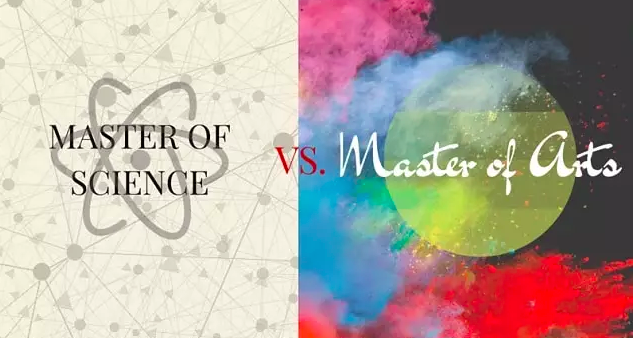May 3. 2018
Choosing a Masters Degree abroad: MA or MSc?
Postgraduate Curricula show various differences among them. A common question usually concerning
candidates for postgraduate studies abroad is the difference between a
Master of Arts (MA) and a
Master of Science (MSc).
Therefore, by identifying and pointing out these differences in five simple points, we tried to help you make the best choice.
- Teaching method
The first simple thought most people make about the differences between an MA and an MSc, is that the MA has more to do with humanitarian studies, while the MSc is primarily related to applied sciences.
Of course, this is not accurate. The truth is that an MA typically offers a more theoretical and balanced curriculum that combines personal study with lectures and class discussions and written work with practical exercises. Conversely, an MSc focuses on theory to a large extent, but it also gives great emphasis on carrying out a lot of research and individual works, and includes modules such as "quantitative methods of analysis" and other related subjects.
- Faculty Characteristics
It is very important to pay attention not only to the
university of interest, but also to the particular
faculty and the reputation of the corresponding curriculum. A university may choose to offer a specific Master program in the form of MA or MSc. This depends on the policy of each school. There are famous schools offering specific postgraduate programs with a reputation higher than that of the university itself, as a whole. An MA may focus more on a subfield, while an MSc deals with the whole field. Therefore, it is advisable to think about what you want to achieve with your postgraduate degree - a more focused overview of a particular subject (MA), or a broader understanding of a scientific field (MSc)?
- Entrance
Postgraduate curricula differ little in terms of entrance and preparation procedures. You can submit a
Bachelor Degree in a similar field, undergo a language test like
TOEFL or
IELTS, and create some personal statement(s) etc., which prove your sufficient skills and knowledge in fields related to the curriculum you have chosen. In most postgraduate programs, the respective universities will expect you to have at least some relevant experience (attendance of similar courses), but even without this you should not worry whether you will be accepted if you show the necessary motivation and the appropriate language test results.
The only remarkable difference between
MA and
MSc in terms of preparation, apart from the obvious personal preference, is that some of the most demanding universities will expect you to have - either a minimal professional/volunteer experience - when applying for MA and some academic or research experience when applying for MSc. These constitute data taken into account in the final evaluation or job offer.
- Typical scientific fields
Although not classified as humanitarian studies, MA programs tend to specialize in areas such as administration, journalism, human resources, tourism, sociology, and all kinds of issues related to arts such as photography, music and architecture.
Postgraduate studies in science, such as information technology, mathematics or engineering, are offered almost exclusively in the form of MSc. The same applies to scientific fields, such as physics, chemistry, biology and geology, as well as theoretical and research studies, such as medicine and pharmacy.
However, there are Master programs that can be encountered in both forms. These include important fields, such as finance, marketing, education, political science, etc. The difference also lies in the teaching methods, on how each particular course is organized, the desired outcome and, of course, the subsequent career prospects.
- Career prospects
Regarding the career prospects, the most significant difference between MA and MSc is what students tend to do after their graduation.
Of course, employers really expect you to have the appropriate Master degree for a particular job. Secondly, the acquisition of a postgraduate degree always offers many chances, for example, a professional or an academic career. On the other hand, it does not mean that you will stay there for the rest of your life.
Indicatively, a postgraduate marketing student can become a new product manager in a growing company, while another one can become an assistant at a university and later attend a PhD or alternatively apply as a professional marketing strategist in a large company.
The important thing is that whatever type of postgraduate program you may choose, you will have great prospects and choices.
Your career will always be a matter of personal choice!

